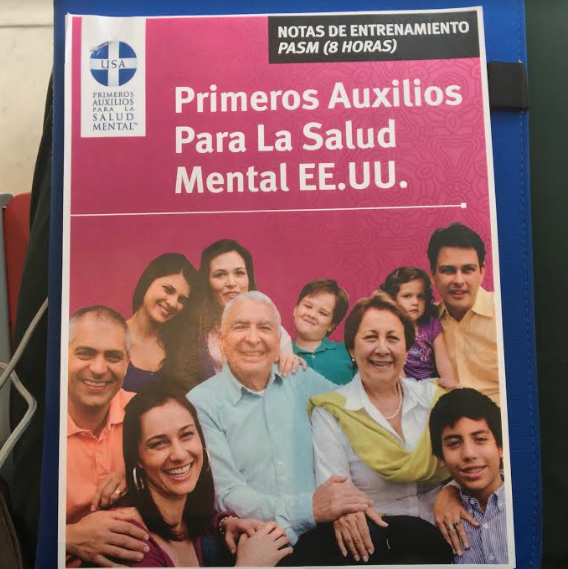Others: What do you do?
Me: I’m a first grade teacher.
Others: Aww, how cute!
Me: Uh, no. It is horrible. The kids are rambunctious. There is nothing cute about the physical fights that occur with children that are angry. These fights usually involve boys swinging and beating up other boys like grown men in prison. Many of the girls are mean. These children come to school frustrated and angry, not knowing how to respectfully speak to one another. I also get disrespected daily by children as young as six and seven years old.
Others: Oh, wow, it’s that bad?
Me: Yes.
Others: First graders?
Me: Yes. I wish you could see it for yourself.
When I speak of what goes on in schools, people are sympathetic, but they don’t really understand the intensity of the situation. Some people don’t want to believe that first graders can suffer from mental health challenges. However, the negative aggressive behaviors exist, and more attention needs to be given to what’s really going on.
Being around people who are traumatized begins to rub off on you and can become vicarious trauma. It’s easy for people to say, “Shake it off. Don’t let the school get to you. Don’t let the kids control you”, especially when it isn’t them going through this experience. It requires more than just getting a massage or a glass of wine to destress. Nine years of being a teacher, in this setting, has affected my mental health. While a popular suggestion is that I can just go to another school, the level of trauma is causing me to not even want to be around children or a school.
As teachers we need trauma informed classrooms, in addition to compassion. We also need:
- Character Education
- Restorative Justice and Positive Behavioral Interventions & Support
- Social and Emotional Learning
It is easy to call children bad, but they’re often misunderstood and products of their environments. Teachers must constantly use discernment to discipline with dignity, but this can be difficult while being traumatized from dealing with the children’s trauma. It becomes a never-ending cycle of people needing help and not getting what’s needed.
I often ask, “WHAT ABOUT ME AND MY TRAUMA?” Even as my mom says, “Oh, so it’s all about you!?” I must reply, “Yes, it is about me”, because what about my mental health? Should I feel guilty that I want to take care of myself and acknowledge my feelings as much as the children I work with? Is it wrong for me to take a stand and speak out about the traumatized children who are part of the problem? It makes me question if I’m a bad teacher.
A lot of people tend to categorize trauma as horrifically extreme experiences, tantamount to molestation and blatant neglect. However, a traumatic experience for a child can be their parents getting divorced, a teacher embarrassing them in class, or being bullied. Trauma is an emotional upset and emotionally upset children can have behavior challenges. These challenges are a mental health concern because it affects children’s cognitive behavioral and emotional well-being. Some examples of this that are often viewed as the child just being difficult are when:
- Children get upset and leave the classroom when it is time for class activities. Before assuming they just don't want to do the work, it could be that they're unable to keep pace with the other students in the classroom.
- Children are always negative towards other students. They are usually projecting their emotions stemming from something else they're upset about.
- Children cannot function with structure. There's a great chance that they are used to chaos within the homes.
- Children don't allow the teacher to help them with academic and/or behavioral support. This could be a sign of trust issues.
All these things, when left unaddressed and unmanaged, become major mental health concerns. So, when a student is having problems academically, emotionally, and behaviorally in school, it’s an immediate red flag that is worthy of attention.
Some ways that parents can get more involved is to talk to their children. They can start by asking how they feel about certain things that are going on at home. After finding an effective means of communication for the child, the parents can meet with teachers. This allows parents the opportunity to see how the child is behaving in class and how they interact with their peers. The best advocate a child could ever have is their parent, so it never hurts to seek out counseling services, especially those that are available at the school.
Our children spend most of their day in school so teachers, despite dealing with their own mental health concerns, play a part in these children getting better. Teachers can refer students to counselors at the schools, build trustworthy relationships with the students, and ask them how they feel about their relationship with one another. It helps for the teachers and parents to be on the same page so that patterns can be assessed, and the child can get the necessary care and attention.
Even though these suggestions might not always work with every child, teacher, and parent, they’re worth giving a try. As with any other trauma survivor, patience is required since behavior and mental health challenges don’t change overnight. The more conversations we have about mental health, the closer we get to having classrooms and schools better equipped to support the affected teachers and children. We’ll also end up with a lot less frustrated teachers ready to leave an industry that cannot afford to lose any more educators.
Stacie McClam has taught everywhere from Washington, D.C., Japan, and Denver, to Kuwait before returning to her native land of Los Angeles. She graduated from law school with education reform in mind but is eager to start a new journey in life as she heals from the trauma experienced in the education world. In the meantime, she'll be enjoying grits and feeding her addiction to fried fish tacos, Smartfood White Cheddar Cheese popcorn, and Twizzlers sweet and sour filled twists.
To keep up with Stacie's journey, she can be followed vi her Education Funk podcast on Instagram, Twitter, and Facebook.































